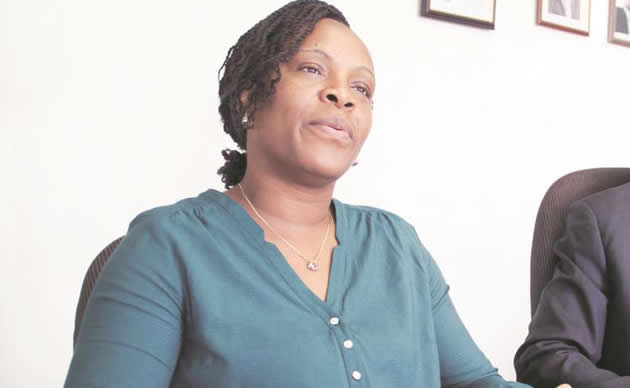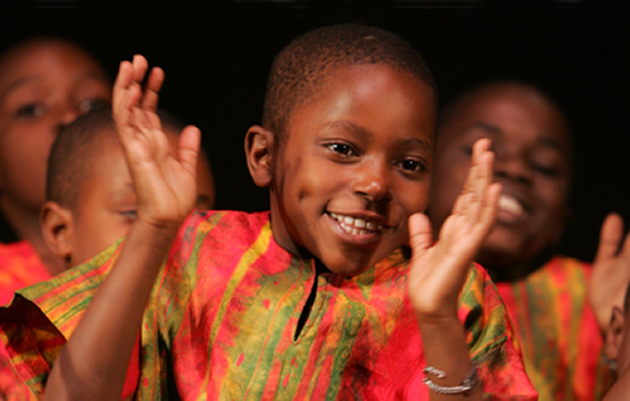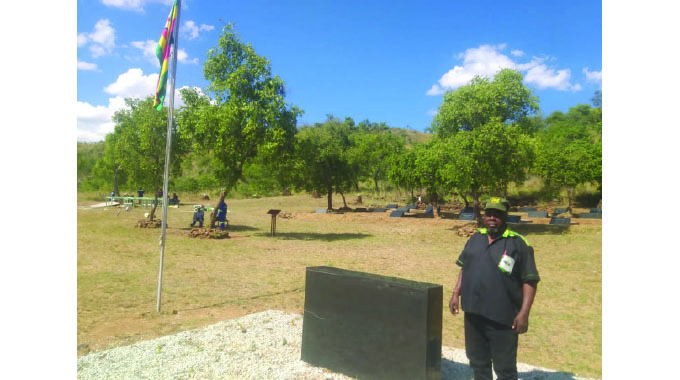The Arena – Oge: Woman with a vision for Africa


Mrs Ogechukwu (Oge) Nwadiliora . . . “Others, like the Chinese, are making it in this country. So, what is our problem?
Hildegarde
SHE is Nigerian by descent, but has worked and lived in Zimbabwe with her husband and children for the past eight years. As a tourism consultant, she believes in Africa and the ability of her people to build and develop it.
That is Mrs Ogechukwu (Oge) Nwadiliora, who recently spoke with this writer about her passion and vision regarding how the continent can utilise its human resource talent, and also ensure that Africans invest in the continent, even if it means starting minimally.
Oge made her remarks knowing full well that Africa, Zimbabwe included, is faced with a myriad of challenges, chief among them the high unemployment rates that force some people to seek those greener pastures in the region and overseas.
Although Oge’s emphasis was Zimbabwe, her remarks were meant for the rest of the continent.
This is how her vision was birthed: “While studying in the United Kingdom, I saw and experienced the plight of our fellow African brothers and sisters.
“Most of our professionals like medical doctors, accountants, PhD holders are doing menial jobs just to live in the UK. These are people that were schooled in Africa, but because they believe that the grass is greener out there, they left for those greener pastures, only to end up doing menial jobs, while ignoring investment opportunities in Africa. In my view, this appears like academic wastage.”
She is 100 percent accurate that this is “academic wastage” considering that the majority of these people in the Diaspora were educated with public funds. But how does she think that this problem can be resolved? Is this also why she did not stay in the UK like most people have done?
Oge said, she was “compelled to return and enlighten our people of the dangers of this African professional migration into the Western nations”.
To that end, together with others, she said that she desires “to engage and work with the relevant authorities to discourage such an inferior and unpatriotic mentality (so that) the professional citizen sees the vast developmental opportunities readily available for activation within Africa”.
She also said that she had since realised that “the majority of Africans have a strong passion to participate in the economic recovery and growth programmes taking place in their respective countries”.
“Therefore, after careful thought, observation and consultation I concluded that an action plan must be initiated to bridge the gap between those professionals and the underutilised human resources.”
She also argued that President Mugabe had said: “Africa is not looking for handouts. Rather, it is looking for partners in massive infrastructural development in creating and exploiting the value chains of its God-given natural resources, and in improving the quality of life of the continent’s citizens.”
To her, this means that African countries’ foreign policies will not liberate them: “I strongly believe that it’s only Africans that can do that for Africa, through investment.”
On Africans investing in Africa, Oge argued: “If we look at most investors we have in Africa, they are mainly Westerners and the Chinese. Only a few Africans are investing in Africa. So, you have to ask yourself why a Chinese comes to invest in Africa if there are no opportunities, as we believe.”
She said the biggest problem is that Africa still needs to deal with its psychological issues, which have thrown it into a vicious slave mentality: “I believe that there is a mindset problem, where we believe that there are no opportunities. We are all looking up to the Government for jobs when, in fact, there are opportunities.
“And, how many Africans, by so doing are being enslaved by offering themselves into slavery because most of them out there are frustrated. The money is not there. They just work to live. That is why we want Africans to open up their eyes and minds and begin to see investment opportunities in Africa. Let us stop selling ourselves as slaves!”
Is this problem affecting particular countries?
Oge said: “This is not limited to Zimbabwe. I think that it’s an African thing although with some countries it is more, but it’s an African thing. But we really have to start working on how to contain this professional exodus.
“In Zimbabwe, for example, we believe that there are many opportunities. Talk of Zim-Asset! Talk about indigenisation! There are so many things that the Government has put in place. But the problem is that most people do not have the right information.
“So, it’s not that people do not want to invest in Zimbabwe. I also don’t believe that people don’t have the money. In most instances, money is not even an issue because you can start small and grow. There are some resources that the Government has made available, but most of the time, we base our information on rumour. That is why we will soon hold a seminar where we want all stakeholders, Government included to come and talk to the people about available opportunities, and from there people can grow.”
She also said that people like Econet founder and Strive Masiyiwa has already set the pace in terms of investing in Zimbabwe and Africa: “I don’t believe that a person like Strive Masiyiwa made it in a day. It was a gradual process. He believed in Africa. His progress started in Africa, and there are so many Strive Masiyiwas out there, but they lack the information.
“Let me underline that the passion is there, but they don’t have the information. And when we talk about investment, we mean in all areas because everyone must have an area of specialisation. That is what the Chinese are seeing, and they are filling those gaps. In every area, there are gaps that need to be filled.
“Even if you go out there to Europe, there are no jobs. They are struggling to give their own citizens jobs. So, that is why they will allow you to do menial jobs despite your qualification. But, this also gives a very bad image on Africa – a PhD holder doing a cleaning job. What it means is that your qualification does not have value to them, because we are not adding value to it ourselves.”
Oge challenged the sceptical local investors, including those in the Diaspora: “What we are failing to realise is that others, like the Chinese, are making it in this country. So, what is our problem? … Money is actually not a factor. In my view, most of the challenges emanate from misinformation. There are people that have the money, and there. We base our judgments on rumours. Sell your idea to the person that has money. We are just wandering in ignorance thinking that there are no opportunities, and the greatest barrier is information.”
The writer finally asked Oge that if the African mindset remains stuck in slave mentality, what it would take to decolonise it, and awaken to the opportun- ities.
She said: “Give them time. It’s not something you do overnight . . . But, it’s unfortunate that we say that we say we are free, when we are not totally free. Although we are independent, we are still using many things from the colonial period, including our education systems. Our minds have not really been liberated.
“In the book of Exodus, God told the children of Israel not to act like the people where you lived (that is Egypt), and not to behave like the people where they were going (the Promised Land). God gave them a new calendar, an educational system and said teach your children this law. This was in order to decolonise their mind from everything they had learnt during slavery. But, we still have the colonial relics in our education system.
“So, our minds have not really been liberated, but like I said, it’s a gradual process. Step by step! By the time one person succeeds, some will come on board. But it is still unfortunate that Africa is wasting its human resources. We end up leaving our countries based on a mindset that thinks that the grass is greener out there.”
Oge called for the “need to harness the exodus of professionals in pursuit of Westernised greener pastures who have become victims of this globetrotting, since the professional exodus has a negative impact on our countries’ service delivery systems.”.







Comments